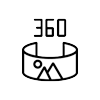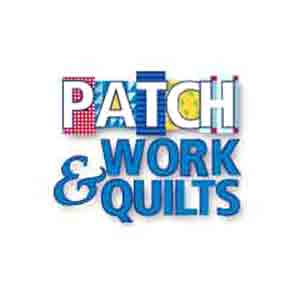Ovens have caused over 100,000 incidents of damage to property in in the last decade.
- Grills, toasters, rings and hot plates have caused more than 40,000 incidents in the last 10 years
- Scottish properties were the most damaged by home appliances, with 31,914 accidents in the last decade
- Jessica Willock, home insurance expert at Confused.com
 , offers tips on how to prevent a home insurance claim by using appliances safely
, offers tips on how to prevent a home insurance claim by using appliances safely
Cookers and ovens are the appliances most likely to leave you claiming on your home insurance, causing 111,426 incidents in the last decade.
That’s according to the latest research from confused.com (Q3, 2022). The study analyses government data on domestic appliance accidents over the last 10 years to uncover the household amenities responsible for the most incidents. Fire rescue service data was used to reveal the regions in England, Scotland and Wales where these incidents were most common.
(Q3, 2022). The study analyses government data on domestic appliance accidents over the last 10 years to uncover the household amenities responsible for the most incidents. Fire rescue service data was used to reveal the regions in England, Scotland and Wales where these incidents were most common.
The household appliances causing the most damage to homes
|
Appliance |
England incidents |
Wales incidents |
Scotland incidents |
Total incidents (in the past 10 years) |
|
Cooker/oven |
87,489 |
5,049 |
18,888 |
111,426 |
|
Grill/toaster |
17,107 |
999 |
4,301 |
22,407 |
|
Ring/hot plate |
17,301 |
880 |
3,356 |
21,737 |
|
Microwave oven |
9,829 |
590 |
2,171 |
12,590 |
|
Tumble dryer |
6,582 |
543 |
761 |
7,886 |
|
Washing machine |
5,595 |
344 |
920 |
6,859 |
|
Dishwasher |
3,023 |
181 |
357 |
3,561 |
|
Fridge/freezer |
2,435 |
137 |
262 |
2,834 |
|
Other cooking appliance |
2,296 |
118 |
271 |
2,685 |
|
Deep fat fryer |
2,047 |
231 |
169 |
2,447 |
Cookers and ovens are the appliances most likely to have homeowners claiming on their home insurance, confused.com study suggests. Responsible for 111,426 accidents in the last decade, these appliances have caused almost 5 times (397 percent) more incidents than grills and toasters in second place. Most common in Scotland, 35 per 10,000 of Scottish residents have damaged their homes due to the use of an oven or cooker. This is 119 percent more than the incidents in Wales, where just 16 per 10,000 residents have damaged their property with an oven or cooker.
study suggests. Responsible for 111,426 accidents in the last decade, these appliances have caused almost 5 times (397 percent) more incidents than grills and toasters in second place. Most common in Scotland, 35 per 10,000 of Scottish residents have damaged their homes due to the use of an oven or cooker. This is 119 percent more than the incidents in Wales, where just 16 per 10,000 residents have damaged their property with an oven or cooker.
Grills and toasters are in second, causing damage to 22,407 homes in Great Britain in the last decade. While that’s only equivalent to 20 percent of the incidents caused by ovens and cookers, grills and toasters have still caused 78 percent more incidents than microwaves (12,590 incidents). Of the 17,107 accidents in England, 5 percent (892) occurred in Merseyside: that’s 6 for every 10,000 residents, and the most in England overall.
Coming in third are rings and hot plates, damaging 21,737 UK homes in the past decade. This is just 3 percent fewer incidents than those caused by grills/toasters in the past decade (22,407). Most commonly occurring in Scotland, 7 in 10,000 Scottish residents had their home damaged by a ring or hot plate since 2011. In England, Greater Manchester is home to the most accidents from rings/hot plates, at 5 in every 10,000 residents.
England’s regions with the most domestic appliance accidents
|
Rank |
Region |
Total incidents (in the past 10 years) |
Incidents per 10,000 people |
|
1 |
Merseyside |
6,844 |
50 |
|
2 |
Greater Manchester |
12,700 |
45 |
|
3 |
Bedfordshire |
2,502 |
37 |
|
4= |
Lancashire |
5,486 |
36 |
|
4= |
East Sussex |
3,052 |
36 |
|
6= |
Greater London |
30,229 |
34 |
|
6= |
West Midlands |
9,859 |
34 |
|
8 |
Devon and Somerset |
5,886 |
33 |
|
9= |
Norfolk |
2,873 |
31 |
|
9= |
Staffordshire |
3,500 |
31 |
With 6,844 incidents in the last 10 years, 50 in 10,000 Merseyside residents had their homes damaged by a domestic appliance. That’s the most in England overall, and 11 percent more than Greater Manchester, home to the second highest incident rate.
Greater Manchester saw 12,700 incidents from home appliances in the last decade, meaning 45 in every 10,000 residents have had their homes damaged. That’s more than a fifth (21 percent) of the accidents in Bedfordshire, where 37 in 10,000 residents were victims of 2,502 incidents in the last decade.
Jessica Willock, home insurance expert at confused.com , comments: “Ensuring your appliances are used when it’s safe to do so, as well as kept in a good working condition is important. Not only can they be expensive to replace, but misuse of appliances can cause damage to the home, resulting in a home insurance claim.”
, comments: “Ensuring your appliances are used when it’s safe to do so, as well as kept in a good working condition is important. Not only can they be expensive to replace, but misuse of appliances can cause damage to the home, resulting in a home insurance claim.”
“As our study suggests, appliances used for cooking are most likely to leave you claiming on your home insurance. For this reason, it’s important to consistently double-check that these appliances are safe for use.”
- Make sure your oven or cooker is free from excess grease. A build-up of flammable liquids significantly increases the chances of a fire causing damage to your home.
- Check plugs and sockets for damage. Unusual burn marks or buzzing sounds are a clear sign that your appliance may need repairing or replacing.
- Become familiar with your appliance’s features. Appliances such as grills and hobs will have different needs depending on the model, and knowledge of these reduces the risk of an insurance claim [5].
- Use the correct equipment. Cookware such as pots and pans will be manufactured to withstand different conditions, so make sure your equipment can handle whatever heat you need [6].
- Never leave your cooking unattended. Doing this can prevent you from stopping a potential emergency before it gets out of control, and prevents unwanted damage to your property.
“Keeping appliances clean and working correctly is not only safer, but it could extend their lifespan. If your appliance is beyond repair, having a home appliance insurance policy should protect you. It means you could be offered a new model similar to the one you already have.”
policy should protect you. It means you could be offered a new model similar to the one you already have.”
Methodology
- Domestic Appliance fire incident data for Fire Rescue Services (FRSs) across Great Britain was obtained from the corresponding government websites [1, 2, 3].
- Domestic appliance fire data was extracted for the previous decade (2011/12—2020/21) for each FRS across Great Britain. Barbecue and camping stove figures were combined for data in England and Wales as they were presented as such in Scotland’s data [3].
- Using the fire incident data, the following figures were calculated
- Number of household fires with domestic appliances as source of ignition.
- FRSs by number of household fires caused by a domestic appliance.
- FRSs by each type of domestic appliance as source of ignition.
- FRSs by household fires with cookers as source of ignition, along with their historical data to calculate which FRS has improved most in cooking safety.
- Number of household fires with domestic appliances as source of ignition.
- Population estimates for each FRS were obtained from the Home Office [4].
- The domestic appliance fires for each FRS were then normalised by population to obtain figures for household fires per 1,000 population, and the FRSs were then ranked according to these values.
Notes
1.) https://www.gov.uk/government/statistics/fire-statistics-incident-level-datasets
2.) https://www.firescotland.gov.uk/about-us/who-we-are/statistics
4.) #non-dwelling-fires-attended">https://www.gov.uk/government/statistical-data-sets/fire-statistics-data-tables#non-dwelling-fires-attended
5.) https://www.ovenu.co.uk/blog/using-your-oven-as-a-bbq-grill/
6.) https://www.honestfoodtalks.com/how-to-use-hot-plate-cooking/





















































 Gütsel RSS Feed
Gütsel RSS Feed



















































